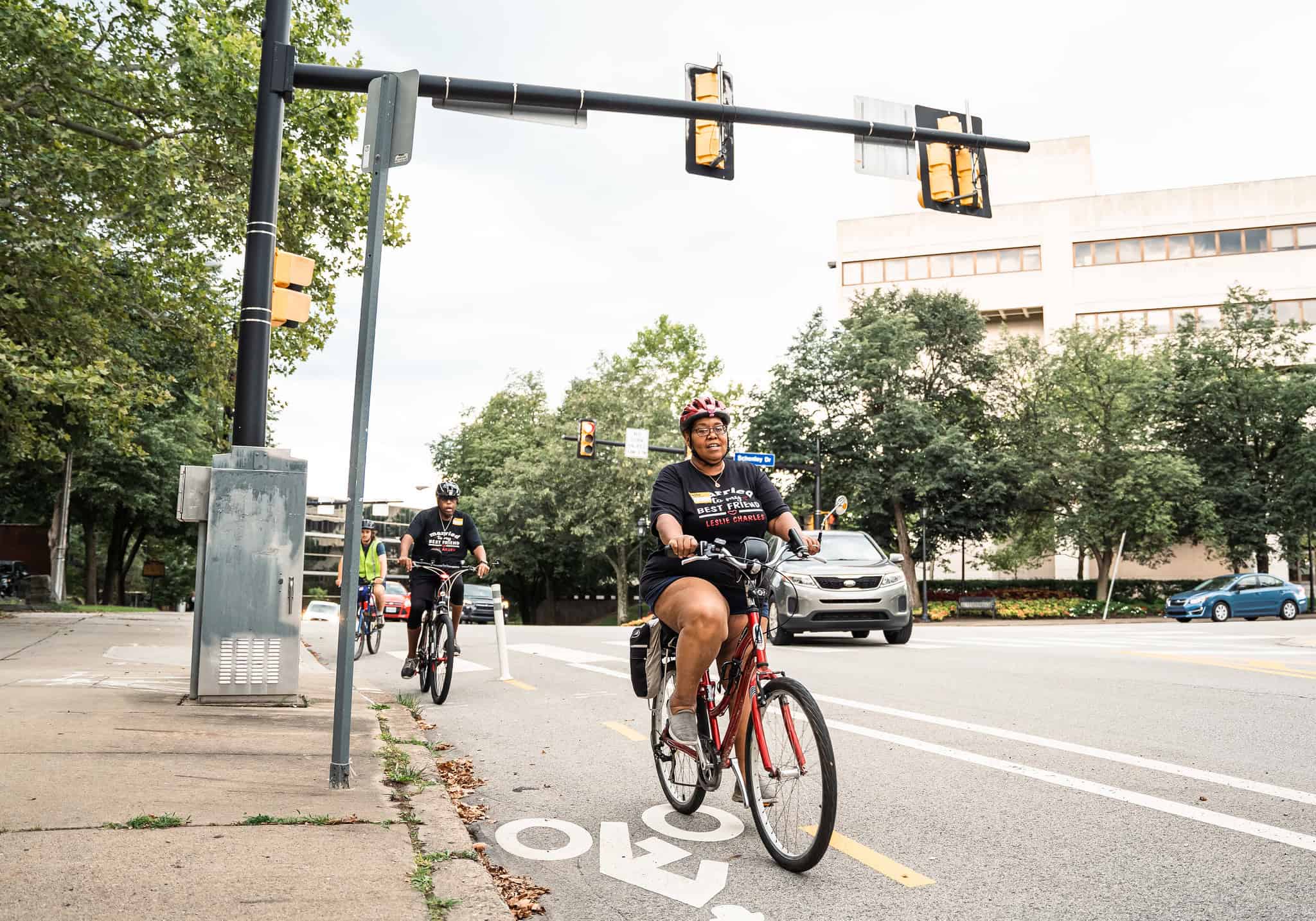
SPC’s new Complete Streets Policy an important step for regional transportation
The Southwestern Pennsylvania Commission, or SPC, is the most influential organization in our region in terms of transportation policy, who uses the streets, and what gets built. Headed by former Allegheny County Executive Rich Fitzgerald, the Commission is composed of appointed members that represent the ten counties in the region, plus the City of Pittsburgh. Full disclosure, Scott Bricker, BikePGH’s Executive Director, is a Commissioner of SPC.
Their influence comes because they are the federally recognized Metropolitan Planning Organization who is responsible for directing the use of state and federal transportation and economic development funds allocated to our region, adding up to approximately $35 billion through 2045.
One way they influence how the funds are used is through policy. For instance, their guiding document is their Long Range Plan called SmartMoves, which helps determine the direction of these investments in the region. There’s a reason that we’ve been encouraging residents to get involved in SPC’s public engagement opportunities.
At the full Commission meeting on Monday October 29, the Commissioners passed a new policy that will affect the future of the region in a positive way. The Commission passed the region’s first Complete Streets Resolution.
In short, Complete Streets mean that everybody, regardless of who they are, where they live, or how they get around, should have the choice to travel in a safe and convenient manner. If we’re only planning for one user of our roadways, i.e. drivers, then these streets are considered incomplete as they exclude a huge swath of residents who cannot or choose not to drive. Complete Streets Policies incorporates these values a government or agency’s day to day work.
BikePGH has long pushed for Complete Streets Policies at all levels of government. The first Complete Streets Policy in our region stemmed from BikePGH’s campaign for the City of Pittsburgh to adopt one in 2016. Since then, multiple municipalities have passed similar policies. SPC is the first agency in the region that transcends multiple jurisdictions to formally enshrine Complete Streets. To their credit, Allegheny County is currently working on a Complete Streets Policy of their own.
Since 2016, we’ve seen firsthand how Complete Streets Policies help ensure agencies are planning for, funding and constructing transportation projects with all users in mind, and not just drivers. These policies can affect everything from operational changes such as maintenance of bike lanes and sidewalks to the planning of new roads. A Complete Streets Policy can back up the decisions a municipality makes, as well as offers residents something to point toward to remind decision makers of these values.

One way we’ll see the real world effects of the new SPC policy will come when decisions are being made regarding the funding of projects. For instance, SPC creates the local rules around how projects are ranked and ultimately chosen, so including Complete Streets in this decision making process can incentivize projects that accommodate multiple roadway users, or even the municipalities that have their own Complete Streets Policy. Essentially, it can encourage more projects that include all road users and not just drivers. This specific policy applies to all projects seeking funding through SPC-administered competitive funding programs for new construction, reconstruction, rehabilitation, repair, maintenance and ongoing operations of roadways, bridges, transit and paratransit infrastructure, on-street sections of trails, and physical changes to other transportation infrastructure via the following competitive funding programs: Congestion Mitigation + Air Quality Improvement Program (CMAQ) ▪ Carbon Reduction Program (CRP) ▪ Transportation Alternatives Set-Aside (TASA) ▪ Smart Transportation for Livable Communities (STLC).
We’re excited to see where this goes, and we applaud this important step for residents in our region.